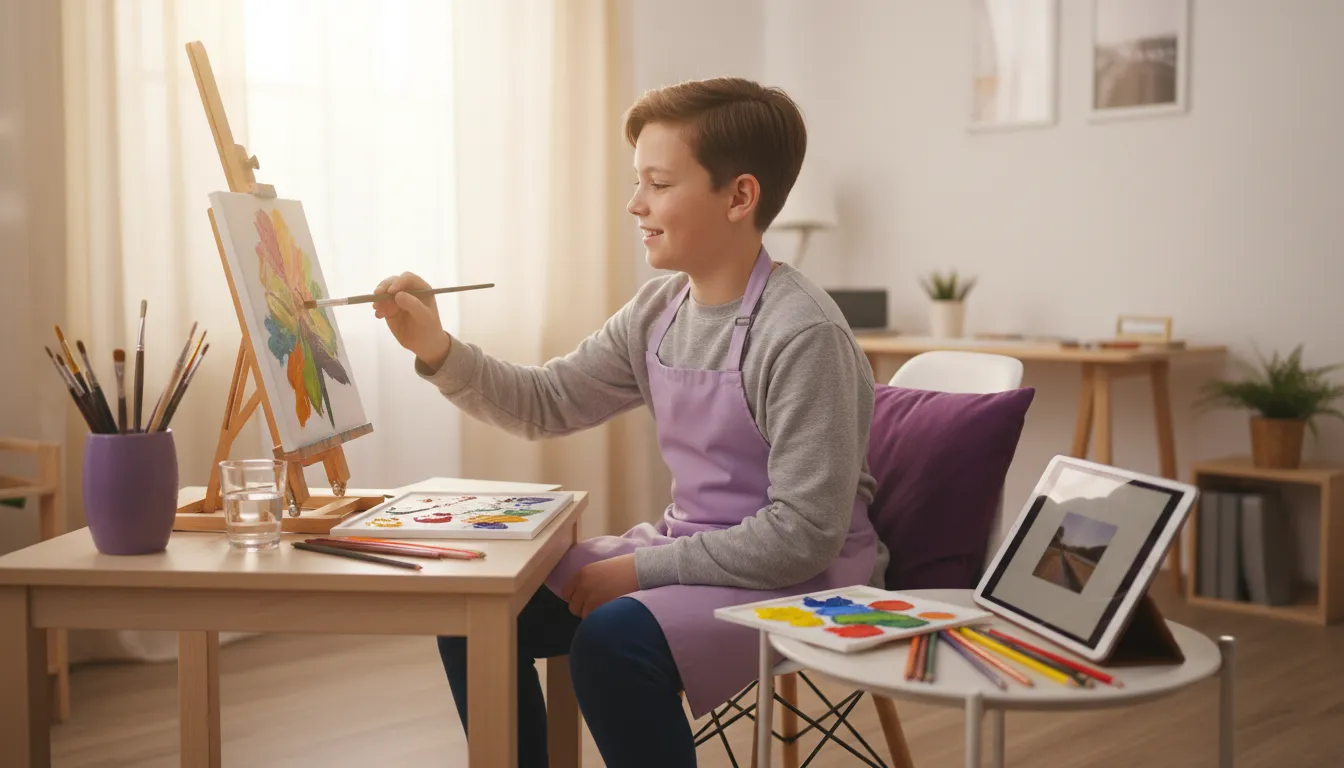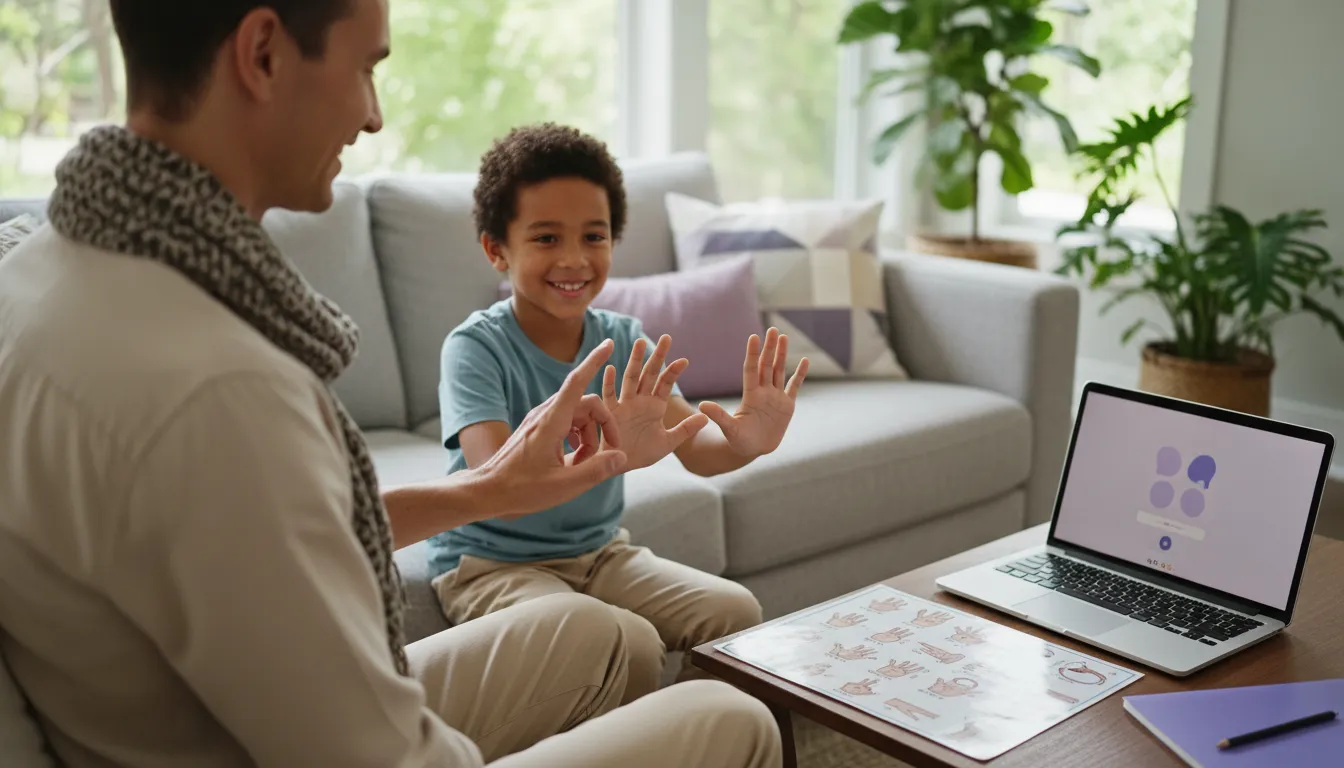Hi, I’m Cassie, mom to three girls, ages 17 and 13-year-old twins. We’re in our 12th year of homeschooling (which feels wild to even type out). This year looks different for each of my kids: my oldest is dual-enrolled at our local community college, and the twins are trying out a hybrid school for the first time.
Over the years, if one theme has woven itself through our homeschooling journey, it’s flexibility. And nothing has embodied that flexibility more than self-paced learning options. Self-Paced learning has been a game-changer for our family, whether online high school classes, community college courses, or Outschool’s self-paced classes.
Let me tell you how.
A Dancer with a Full Course Load
A few years ago, my oldest was accepted into a pre-professional ballet program out of state. For two years, she danced about 30 hours a week (yes, that’s basically a full-time job for her body!). At the same time, she was able to keep up with a full course load through self-paced online classes and dual enrollment at community college/ASU.
Here’s the thing, there’s just no way she could have pulled that off if everything had been tied to live class times. Ballet rehearsals don’t exactly work around “Intro to Psychology” Zoom calls. But because she had the freedom to watch lectures and complete assignments on her schedule, she could both pursue her passion and stay on track academically.
In fact, that flexibility and her own work ethic have allowed her to graduate a semester early. That simply wouldn’t have been possible without asynchronous options.
And honestly, it’s not just about the schedule, it’s about the content too. I am not equipped to teach Psychology 101 or College Algebra (I admire anyone who is!). But thanks to self-paced options taught by passionate, knowledgeable educators, she was able to dive into rigorous courses far beyond what I could provide at home.
Breathing Room for Our Neurodivergent Learner
One of my twins is neurodivergent, and self-paced learning has been a gift for her. Some days, learning flows easily. Other days, anxiety or sensory overwhelm means she needs more breaks, more space, and more control over pacing.
With self-paced classes, she can stop and start as often as she needs, rewatch lessons when something doesn’t click, and return when she’s ready. It takes away the pressure of “keeping up” with a live class when she really needs time to pause.
The honest reality is that parenting a neurodivergent child takes resilience and patience, and adding the role of homeschool teacher can make the road even more complex. Still, it also brings some of the most meaningful and rewarding moments. Self-paced classes have taken on a bigger role when we’ve gone through harder seasons with her, helping us keep learning moving forward when everything else felt heavy. We lean more from live interactions during calmer stretches (though, let’s be real, nothing ever feels truly “calm”). But knowing that self-paced learning is there when we need it most has been a lifeline.
The benefits aren’t just for her but also for me. Having her engaged in self-paced classes gives me a bit of breathing room during the most challenging moments, while also knowing she’s still being nurtured and supported by a teacher who gets it. And the written feedback she receives in Outschool’s self-paced classes has been incredible: it’s often easier for her to digest than live feedback and allows her to return to it as needed. Meanwhile, I can focus on helping her navigate life outside of academics without feeling like I’m dropping the ball on her learning.
FIRST MONTH FREE!
Get support that meets kids where they are.
Learn moreFrom Reluctant Writer to Confident Creator
My other twin has had her own journey with self-paced classes, especially in areas that didn’t come naturally to her, like spelling and creative writing. At first, writing felt like pulling teeth. (If you’ve ever had a reluctant writer, you know the struggle!)
But with self-paced classes, she found a safe environment where she could take her time, share her work without fear of being “put on the spot,” and receive thoughtful teacher feedback. That space to make mistakes without judgment built her confidence step by step.
One of the best parts was being able to pair her with an Outschool educator who was not only skilled but also incredibly enthusiastic. That teacher brought a kind of spark and encouragement that I just couldn’t replicate at home, and it made all the difference. Now my reluctant writer is not just tolerating writing, she’s choosing to write. She’s become a strong speller and writer who even writes for fun, which is a transformation I didn’t see coming when we started.
Why We Love Self-Paced Learning
For our family, self-paced learning hasn’t been about avoiding live classes or other curriculum altogether; it’s about having more options. It’s about making space for passions, supporting unique learning needs, and giving kids the confidence to grow at their own pace.
And for me as a parent, Outschool has truly been an anchor. I don’t have to be an expert in every subject; my kids can learn Psychology, Algebra, creative writing, and more from educators who genuinely love what they teach. That passion comes through, whether it’s in a live class, a recorded lesson, or a thoughtful note of feedback. And because so many of these options are self-paced, we’ve had the flexibility to fit learning into the ebbs and flows of our family life. That combination, expertise, passion, and flexibility, fuels my kids in ways that go far beyond academics. It reminds them (and me) that learning is something worth being excited about.
One of the benefits of Homeschooling is that by its very nature, it’s flexible, but self-paced classes have expanded that freedom in ways I never expected. They’ve let us chase big dreams, survive hard seasons, and celebrate little victories along the way.
So if you’re in the thick of homeschooling and wondering if self-paced options are worth trying, take it from me: they can be a lifeline not just for academics, but for the whole child, their passions, their challenges, their confidence, and their joy.






.svg)
.svg)







